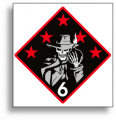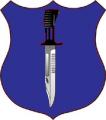Back to Basics…The Lost Art of Basic Combat Fundamentals
Four days after I turned 17-years old, I found myself at MEPS enlisting in the Army in January of 1993. A lot has changed since then, and a lot of redirection of focus has taken place over the last two decades of the service I still maintain.
When I went to 2nd Ranger Battalion in 1994, I was instantly given the realism of what I had entered, as I did not really get a chance to sleep for the first few days of my arrival. I inprocessed through CIF, received the (3) duffel bags of gear, rucksack, etc., only to get to the Ranger Battalion and instantly have an E4/Specialist yelling at me that night to get my gear ready to head to the field. He threw his web gear at me, and said, “Make yours look like mine.” So, without any hesitation, I took the SOP that was given to me, and started to take 550-cord and start to tie down my equipment, cut off excess nylon off of straps, 100mph tape up loose tails, and place items in the little pouches tied down to my gear that I would later use in the field. Just for my canteen cover and canteen, I had to even tie down the little plastic flap for utilizing the tube on a gas mask, then secure it with 100mph tape…Place iodine tablets in the little pouch on the outside of the canteen cover, place engineer tape in the cover, with a canteen cup that had a stove stand that slid over the outside of the cup, and finally tied down my canteen to my gear in case it fell out, I wouldn’t drop it and lose it in the night or on a jump.
The detail to which I had to just get my canteen and canteen cover ready to the way my rucksack was setup. Even something as simple as taking illumination tape, writing my personal information on it, covering it with acetate, and then securing it with 100mph tape to the frame of my rucksack was an intricate detail. To some, they may wonder why you would do that, but to someone with basic knowledge of field craft, they know that at night, you will be able to see your name in the dark, and know which rucksack is yours in an ORP when you have to grab it and run to move out from a raid or ambush.
In today’s world, it is all about what “guchi gear” you can get, or what elaborate setup you can have your weapon put into…From Surefire lights, Picatiny Rails, custom buttsocks, etc., it is all about what may work, but looks “cool” at the same time. The pictures of Rangers floating down the river on a Zodiac with painted faces are gone. We have become the age of the “Techy Warrior”, and less on the basics, and field craft. I personally have seen infantry that are barely able to utilize a compass, read a map, perform a true road march, and be able to setup their gear to be able to stay out on a patrol for more than 24hrs. The US soldier of the modern age is completely attached to their vehicles, “guchi gear”, technology, and the roads of the country we are in. The philosophy of decentralized operations is a lost art, and even the ability to perform extended patrols with knowledge of “The Basics” is becoming even more of an issue. No longer do soldiers place camouflage paint to their faces, but rely on digital camouflage that has proven to be ineffective in all environments to aid in their physical feature break up.
This is something that I have been watching for a long time since we changed to the ACU, Velcro, MOLLE, body armor (IBA, IOTV, etc.) and other equipment.
Yes, it all works fine in Iraq and Afghanistan, but there is absolutely no way on earth that you can take the soldier equipped for Iraq or Afghanistan and place them in a jungle and expect them to be able to perform the same mission. In the heat and humidity of the jungle and other temperate environments, the foam padded helmet that does not breath creates a heat trap, and absorbs moisture that will not ever dry…the body armor expected to be worn will fry a soldier due to their body core temperature going through the roof…the lack of knowledge of field craft while on a patrol when they expect to be back at the FOB that night…etc…….These are all examples and failures of our military to understand we cannot become “Pigeon-Holed” into one form of combat, but have to realize we must be able to fight in any environment.
Honestly, based on how we equip our soldiers for Iraq/Afghanistan, if we had to send them to a tropical environment with exactly what they have there….Can anyone honestly say that a Stryker, or that soldier with the IOTV, and tons of gear will be able to survive there?
….I say not

















Bookmarks